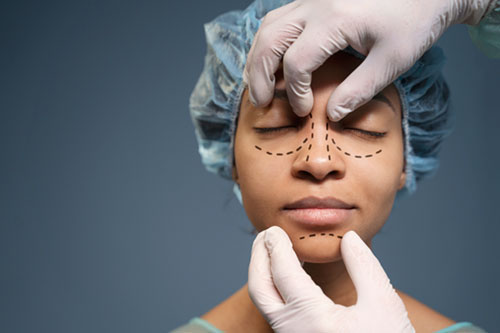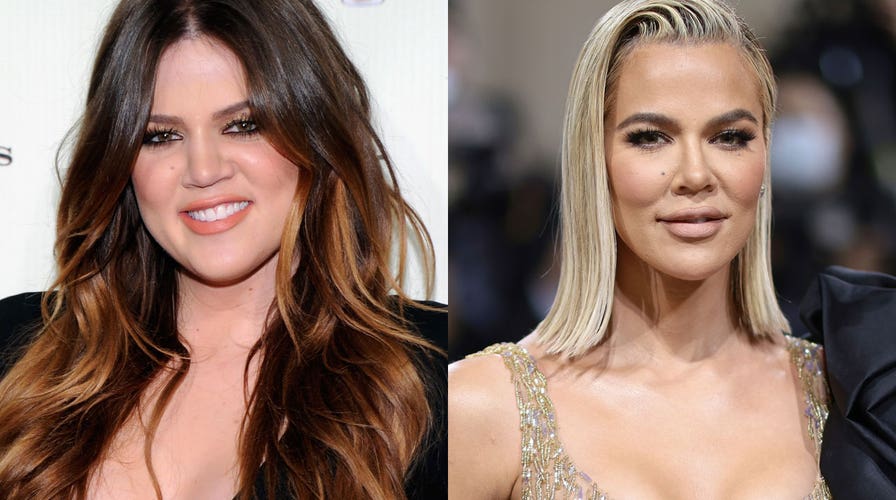Exploring the Mental and Social Elements That Drive People to Consider Aesthetic Surgical Procedure as a Way of Enhancement
The decision to pursue plastic surgery usually expands beyond mere visual appeals, intertwining with emotional and social dynamics that merit thorough exam. Aspects such as self-confidence, prevalent social charm requirements, and the pervasive impact of social networks converge to form individual inspirations for surgical improvement. As these influences become significantly popular, recognizing the underlying psychological and cultural contexts is crucial. What stays to be explored is the profound influence these aspects have not just on individuality however also on wider societal norms and worths surrounding elegance and acceptance.
The Function of Self-worth
Self-confidence substantially affects a person's choice to seek cosmetic surgical procedure. People with reduced self-worth usually perceive themselves in a negative light, leading to sensations of inadequacy concerning their physical appearance.

Eventually, the role of self-esteem in the decision-making process regarding plastic surgery highlights the intricate interaction in between body picture, personal fulfillment, and psychological health and wellness. Comprehending this connection is important for health care experts to ensure that patients are making educated choices rooted in sensible assumptions and emotional well-being.
Social Elegance Requirements
Influenced by prevalent media representations and cultural stories, social beauty criteria play an important duty fit people' perceptions of their very own bodies. These requirements are typically characterized by an idealized form of elegance that highlights traits such as slimness, balance, and youthfulness. As these suitables are continued via different networks, including film, tv, and marketing, individuals often internalize these messages, leading to discontentment with their all-natural look.
The implications of these social standards extend past visual choices; they can affect self-confidence, psychological health, and social relationships. Individuals that regard themselves as falling brief of these standards may experience sensations of inadequacy, motivating a desire for plastic surgery as a way of achieving social approval. This pursuit is commonly sustained by the idea that satisfying these perfects will certainly enhance not only physical appearance but likewise social standing and personal fulfillment.

Impact of Social Media Site
The impact of societal appeal criteria is more amplified by the rise of social networks systems, where curated photos and idealized representations of beauty are ubiquitous. Customers are constantly exposed to filtered and edited photographs, which commonly show unattainable physical features. This direct exposure grows a culture of comparison, leading individuals to evaluate their own look versus these frequently impractical standards.
Social media influencers and stars often promote cosmetic procedures, stabilizing the idea that medical improvements are a sensible methods for accomplishing societal ideals (plastic surgery rancho cucamonga). The visibility of these enhancements can create an assumption that undertaking plastic surgery is a conventional method, consequently influencing people to take into consideration comparable interventions as a path to boosted self-confidence and social acceptance
In addition, the interactive nature of social media sites enables immediate responses with likes and comments, better strengthening the desire to comply with preferred charm standards. Such communications can intensify feelings of insufficiency and drive individuals towards cosmetic surgical treatment as a way of getting validation. Inevitably, social networks plays a crucial function in shaping assumptions of charm, which significantly affects the decision-making processes bordering plastic surgery.

Social Point Of Views on Appearance
Across numerous cultures, perceptions of look are deeply rooted in historical, social, and economic contexts, forming individuals' sights on elegance and charm. In many cultures, appearance acts as a substantial marker of identity, affecting social status, specialist chances, and personal partnerships. For instance, in some societies, light skin is typically associated with wide range and opportunity, while others may glorify darker skin tones as signs of strength and credibility.
Furthermore, typical charm standards are commonly bolstered with cultural narratives, media representations, and family affects, causing varying ideals throughout various regions (plastic surgery rancho cucamonga). In Western societies, the focus on young people and physical conditioning usually drives individuals towards aesthetic enhancement, while in specific Eastern cultures, more subtle adjustments aligned with standard aesthetic appeals might be chosen
Globalization and the expansion of electronic media have additionally made complex these characteristics, creating a hybridization of appeal perfects that transcends geographical boundaries. As individuals significantly browse these cultural narratives, the pressure to adapt specific appearance standards can cause the need for cosmetic surgery, reflecting a complicated interaction of personal goals and cultural worths. Recognizing these social viewpoints is essential in dealing with the motivations behind cosmetic surgical treatment factors to consider.
Mental Effects of Plastic Surgery
Many people looking for cosmetic surgical treatment report experiencing profound emotional effects that can considerably alter their self-perception and psychological health - plastic surgery rancho cucamonga. The wish for physical enhancement often originates from underlying problems such as low self-worth, body dysmorphic condition, or social pressures investigate this site regarding charm requirements. For some, the immediate post-operative stage can cause a short-term boost in positive self-image and fulfillment with their appearance, cultivating a feeling of empowerment
However, these favorable feelings might not be withstanding. Study suggests that while some patients experience enhanced self-esteem, others might face elevated anxiety or depression if their assumptions are not met. This disparity can occur from impractical ideals perpetuated by media representation and social narratives surrounding my latest blog post elegance.
Moreover, the emotional ramifications of plastic surgery prolong past the individual. Relationships with household and friends might be stressed as social dynamics change, bring about feelings of seclusion or alienation. Ultimately, the mental influences of plastic surgery are diverse and intricate, requiring cautious factor to consider by both prospective people and health care companies to ensure enlightened decision-making and sensible assumptions.
Conclusion
To conclude, the decision to go after plastic surgery is significantly affected by a combination of self-esteem concerns, societal charm criteria, and cultural perspectives on look. The pervasive reach of social media sites even more exacerbates these stress, promoting unrealistic suitables that people usually strive to achieve. Comprehending these mental and social aspects is necessary for resolving the inspirations behind plastic surgery, highlighting the demand for an extra nuanced discussion bordering appeal and self-acceptance in contemporary culture.
The decision to pursue cosmetic surgery often extends past plain aesthetics, linking with social and psychological dynamics that merit comprehensive evaluation. Ultimately, social media plays a pivotal role in shaping assumptions of elegance, which dramatically impacts the decision-making procedures bordering cosmetic surgical treatment.
As individuals increasingly browse these cultural narratives, the stress to adhere to specific look requirements can lead to the desire for cosmetic surgical procedure, showing a complex interaction of social values and individual goals.In final thought, the choice to go after cosmetic surgery is dramatically influenced by a mix of self-confidence concerns, societal elegance requirements, and social point of views on look. Comprehending these social and mental variables is necessary for internet dealing with the inspirations behind cosmetic surgery, highlighting the demand for a more nuanced discussion surrounding appeal and self-acceptance in contemporary society.